Great Books Make You Cry
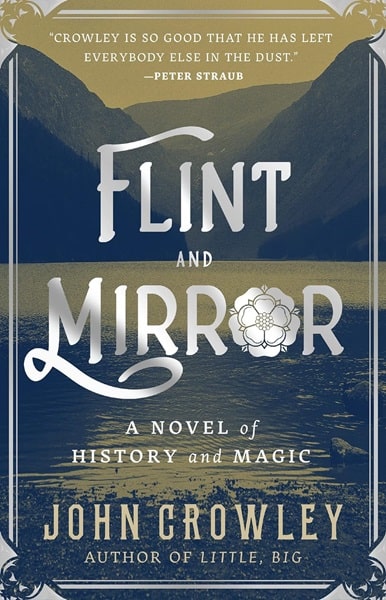 |
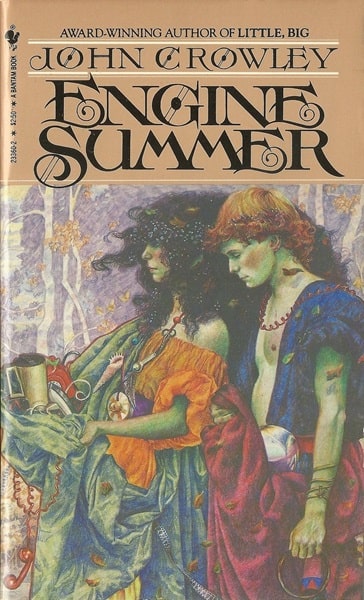 |
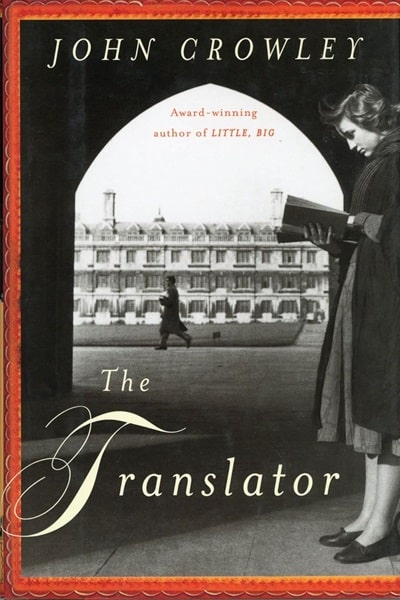 |
John Crowley’s Flint and Mirror (Tor, April 2022), Engine Summer (Bantam, December 1983), and The
Translator (William Morrow/HarperCollins, April 2002). Covers: unknown, Yvonne Gilbert, Chin-Yee Lai
Recently I mentioned that passages in John Crowley’s Flint and Mirror made me cry… and it was (nicely) hinted that maybe it’s odd for men to cry while reading.
The thing is, I cry often while reading. Sometimes for sad events, sometimes for joy, sometimes for anger, sometimes for wonder, sometimes for sheer beauty.
I mean, Crowley does it to me all the time. The conclusion of Engine Summer makes me tear up just thinking about it. (“Ever after. I promise. Now close your eyes.”) And the same for a few passages in The Translator. I was tearing up just trying to talk about “Great Work of Time” at a panel at Boskone a few years ago.
[Click images for sizes that will make you cry.]
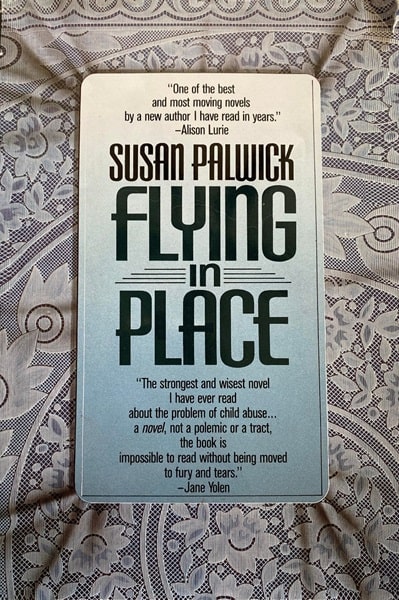 |
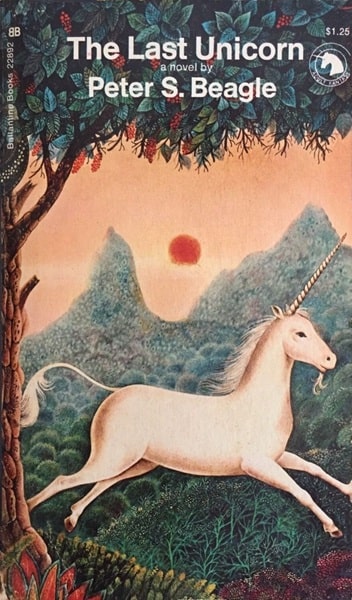 |
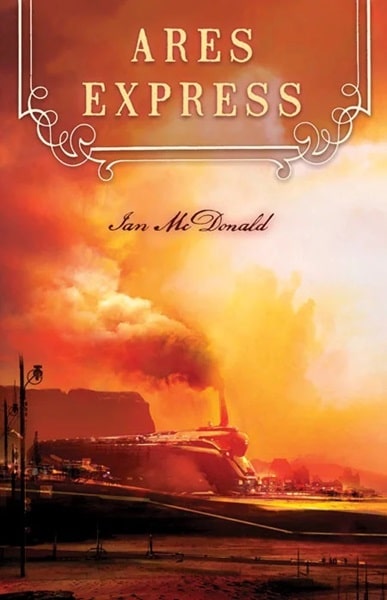 |
Flying in Place by Susan Palwick (Tor, May 1992), The Last Unicorn by Peter S. Beagle
(Ballantine Books, 1969,) and Ares Express by Ian McDonald (Pyr, March 2010).
Covers by Paul Stinson, Gervasio Gallardo, and Stephan Martiniere
Le Guin does it too — the last paragraph of “The Stars Below” always gets me. (“Stars and gatherings of stars, depth below depth without end, the light.”) And the scene in “Nine Lives” when Kaph finally really sees Pugh “holding out his hand in the dark.”
But lots more. I remember reading Susan Palwick’s Flying in Place over lunch at work, and finishing the book — probably about the whole last half of the book! — in abject tears, at my desk.
The great scene towards the end of Middlemarch, when Dorothea and Rosamond have their talk.
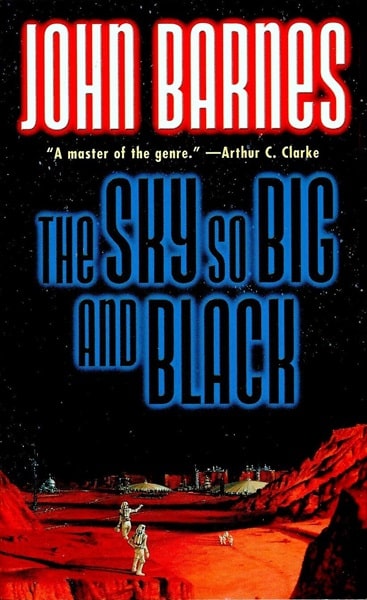 |
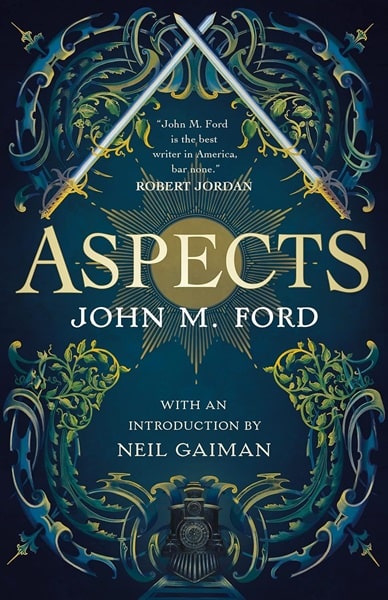 |
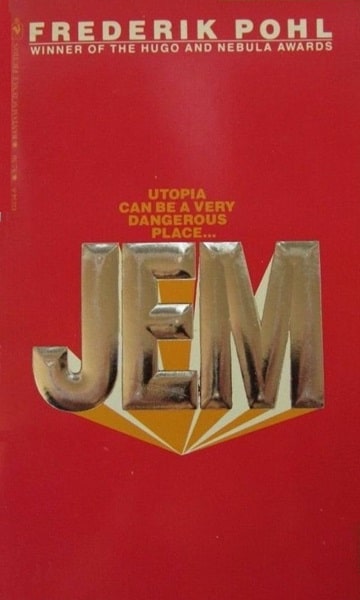 |
The Sky So Big and Black by John Barnes (Tor, October 2003), Aspects by
John M. Ford (Tor, April 2022), and Jem by Frederik Pohl (Bantam, April 1980).
Covers by Vince Natale, Marisa Aragón Ware, uncredited
The Last Unicorn, of course. Or the sheer awe in Ian McDonald’s Ares Express. When we realize what has happened to Terpsichore in John Barnes’ The Sky So Big and Black. Passage after beautiful passage in John M. Ford’s Aspects.
For an example of anger making me cry (and throw the book across the room): Jem, by Frederik Pohl. (Not anger at Pohl, but at the stupidity of the human race in that book.)
Maybe I’m just an old softy, but, dang it, that sort of thing is part of what art is supposed to do.
Rich Horton’s last article for us was an obituary for Christopher Priest. His website is Strange at Ecbatan. Rich has written over 200 articles for Black Gate, see them all here.
For me it’s the end of the chapter “The Siege of Gondor” in The Return of the King. And the final page or so of Watership Down. Just saying the words from memory in my head can set it off. The ending of The Masters of Solitude (where Singer finishes carving the epitaph for his mother that he started years before) is also a candidate.
Indeed, though my favorite line in The Return of the King is the very last: “Well, I’m back.”
Some passages in LOTR get me misty, and though it’s not a sf or fantasy novel, when Septimus Harding died at the end of Trollope’s Last Chronicle of Barset (no spoiler here, the book is 150 years old), I cried like a baby.
I couldn’t agree with you more, Rich – this is what art is supposed to do. Especially as I get older, I less and less want stoic tough guys slo-mo walking away from enormous explosions, or cars flipping end over end through the air, or spandex ciphers belting each other to no purpose other than setting up the next installment in the franchise.
More and more, I find that what I want is just to be moved, to see or read something that will actually make me feel something; I’ve discovered that I like nothing better than having my heart torn out.
We watched the entire John Wick sequence of films at my son’s urging. I can’t deny the technical excellence of much of the filming, but (even though they do try, unlike many action films) I just couldn’t care enough.
If you’ve already seen it, you’ll know why I’m recommending it, and if you haven’t, see it immediately – Fellini’s Nights of Cabiria.
I have not seen it! I will try to get to it. Now that my wife has gotten in the habit of turning subtitles on even for shows in English, she can’t complain if I want to watch a foreign film!
There are several Kipling stories that choked me up when I read them aloud to my wife, including particularly “A Church There Was at Antioch” and “The Miracle of Purun Bhagat.
Oh, Kipling for sure. Add: “The Story of Muhammad Din”, and of course “The Gardener”.
Last time I reread Crowley’s _Little, Big_ I dissolved into tears on eight separate occasions; not at sad passages, but at points where I could feel the words go through my soul like a blade.
I am gearing up for a reread of Little, Big! (I got the new special edition, most I’ve ever spent for a book.)
–The sweet, sweet, so bitterly sweet and agonizing joy of seeing our friends the Lotus and the White Hole in the last pages of Diane Duane’s “So You Want to Be a Wizard.”
–The fifth book of Timothy Zahn’s Quadrail series, where he spends four.5 books making the Mo’hdri the sort of villain that one relishes detesting, and in the space of a single paragraph metamorphoses the Mo’hdri into someone whom the reader begs a happy ending for (the book sails across the room because I didn’t WANT to root for the Mo’hdri, but of course gets picked up again; it’s so easy for authors to take a character from beloved to loathed in an instant, but no other has ever turned a character from hated to treasured in four sentences– Zahn needs some sort of recognition for that feat), and then the terror and teary hope of watching the conclusion to the Mo’hdri.
–The part in C. S. Lewis’s “The Great Divorce” where the wretched, struggling man with the lizard on his shoulder tumbles into such broken defeat and whispers the plea in such dejected desperation, to rise up in the fullness of glory, joy, wonder, and the rarest grace could never be read in full understanding without tears or pacing, or hopping in place.
No. Male, female, habitual, unusual– if the author can make us cry for the right reasons, we all deserve to shed our tears and the author deserves to have provoked them.
Thanks for sharing these small, great moments in books.
I only read the first of the Quadrail books and I enjoyed it, but I didn’t have enough reading time to get to the rest. Maybe I’ll do that soon!
And The Great Divorce is excellent, easily my favorite of Lewis’ works of apologia. (In part, I think, because of the George MacDonald influence, speaking of a writer who could me one cry! (At the Back of the North Wind is just wrenching, and The Golden Key is glorious.)
Others have gotten through book 3 of Quadrail and reached saturation on the setting, so the series may be worth reading spaced well apart. But if you do read through to the end, I hope that you enjoy it– and even more hope to gain a comrade in being torn between throttling and praising Zahn for the Mo’hdri trick.
Thank you for the recommendations for MacDonald. I’ll try those. His only work that I’ve read is “Phantastes,” and I struggled through it. Perhaps a box of tissues and a copy of “The Golden Key” is the order of the day for after work.
“The Golden Key” is quite short, and its available in a nice edition illustrated by Maurice Sendak. I reviewed it, and another MacDonald story illustrated by Sendak, “The Light Princess”, here: https://rrhorton.blogspot.com/2016/05/a-couple-george-macdonald-books-light.html
I too struggled with PHANTASTES. But a great many of his stories ostensibly aimed at children are really wonderful. (THE PRINCESS AND CURDIE and THE PRINCESS AND THE GOBLIN, for two additional examples.)
Phantastes is a MacDonald I Haven’t read (it’s on TBR shelf, naturally), but I thought Lilith was tremendous, achingly deep and beautiful. A good one to go with it is C.S. Lewis’s Till We Have Faces, his most MacDonald-like work.
Excellent review, and thank you for pointing me toward it. It was very good to know what I’d get into prior to reading.
I loved The Princess and The Goblin and The Princess and Curdie immoderately when I was a kid. I can see those endless upward staircases now. The first time I read At the Back of the North Wind, it was as a family read-aloud with my kids. About 90% of it worked beautifully for us. The ending must have been happy in MacDonald’s worldview, but my second-generation-Pagan kids, then with ages in the single digits, were not having any of it. I put Phantastes on the syllabus of a Survey of Literary Fantasy once, with a chronology that ran from Sara Coleridge in 1837 to short stories published just the year before the course ran. Phantastes was definitely the right MacDonald for the intent of the course, but the students bounced off it. I probably should have stuck with The Light Princess.
I don’t reread novels that often, and can’t remember what have this effect on me (anyway currently I prefer comfort re-reading if I’m to spend hours of my limited time), but I always get blurry-eyed with “The Man Who Lost the Sea”.
Definitely “The Man Who Lost the Sea” does it to me, too!
I tend to water up with sentimental sections, real heart-string tuggers. Keith Laumer and his too-human Bolos can work the tear ducts on me, like the ending of “The Last Command”, with a long-buried, battered Bolo talking to its aged human commander :
“Command … Unit LNE reports main power cells drained, secondary cells drained; now operating at 0.037 per cent efficiency, using Final Emergency Power. Request advice as to range to be covered before relief maintenance available.”
“It’s a long way, Lenny …” Sanders’s voice was a mere whisper. “But I’m coming with you.”
Since we rarely confuse this writing with great prose, I am left to wonder if a book makes you cry because it is good or if a book is good because it makes you cry, akin to the old theological conundrum (“Is it good because God loves it, or does God love it because it is good?”).
Posited: the theological conundrum is invalid as a conundrum, because God not only loves the good, but also loves the could-be-good. If he didn’t, he wouldn’t have spent several single-minded millennia making a way for the broken-but-could-be-good humans to become good and get back to him.
Ergo: in writing, perhaps the book is good when we see the good or the could-be-good in it, whether the quantity is great, small, or so-close-to-being-there-but-not-yet. Since we all see the good and could-be-good in different books in different ways, that’s why we have debates over whether a book is good or is literature or not. And, like God, when we see the good and the could-be-good, our response is to cry and love it.
…Also, I read Laumer’s Retief instead of Bolos to avoid tears, but your quotation got me weeping over my sandwich. Dash it all!
If God loves all things, then do the best readers love all books? Hmm.
And I am also a Retief fan, which occasionally leads to tears of laughter.
Good question. Hmm!
Favorite Retief moment?
I think really early in the timeline, when Retief upsets the “banquet” before the CDT diplomats can disgrace themselves by eating the trash food (“Protocol”). Followed, naturally, by a fight with flashing swords!
Or the last line of “Sealed Orders”, where said item is deposited, still sealed, in the incinerator slot.
Yours?
That self-same banquet! It sticks in the mind and the grin sticks to the face. I wonder how many Retief readers would name that moment; perhaps it is the quintessential encapsulation.
Second up… probably the comeuppance of the Krll in Keith’s “Retief’s Peace,” which led me to Laumer’s Retief in the first place.
One that gets me is Ben Bova’s “Stars Won’t You Hide Me”.
Clifford Simak’s “City” brings me to a halt every couple stories.
Yeah, there are some books (Lord of the Rings most definitely among them) where I have to kind of be careful to arrange things so that I’m reading the final few chapters when I’m safely at home by myself and not out in public.
I know everyone lauds The Last Unicorn, butI have always preferred Peter S. Beagle’s The Innkeeper’s Song which always makes me cry.